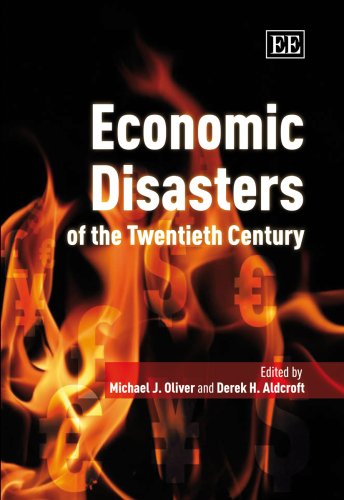

Most ebook files are in PDF format, so you can easily read them using various software such as Foxit Reader or directly on the Google Chrome browser.
Some ebook files are released by publishers in other formats such as .awz, .mobi, .epub, .fb2, etc. You may need to install specific software to read these formats on mobile/PC, such as Calibre.
Please read the tutorial at this link: https://ebookbell.com/faq
We offer FREE conversion to the popular formats you request; however, this may take some time. Therefore, right after payment, please email us, and we will try to provide the service as quickly as possible.
For some exceptional file formats or broken links (if any), please refrain from opening any disputes. Instead, email us first, and we will try to assist within a maximum of 6 hours.
EbookBell Team

4.8
54 reviews- Barry Eichengreen, University of California, Berkeley, US
How do we define an economic disaster? A difficult question. Most centuries would claim that they have had their share of disasters, but the twentieth century certainly seems to have been more prone to them than the previous one. A number of leading economists and economic historians assemble here to examine nine key disasters with international or global implications.
The First and Second World Wars, the great depression, oil shocks, inflation, financial crises, stock market crashes, the collapse of the Soviet command economy and Third World disasters are discussed in this comprehensive book. The contributors subject these disasters to in-depth assessment, carefully considering their costs and impact on specific countries and regions, as well as assessing them in a global context. The book examines the legacy of economic disasters and asks whether economic disasters are avoidable or whether policymakers can learn from their mistakes.
The book will appeal to a wide variety of social scientists, including those working in economic history, international relations, international political economy and geopolitics.